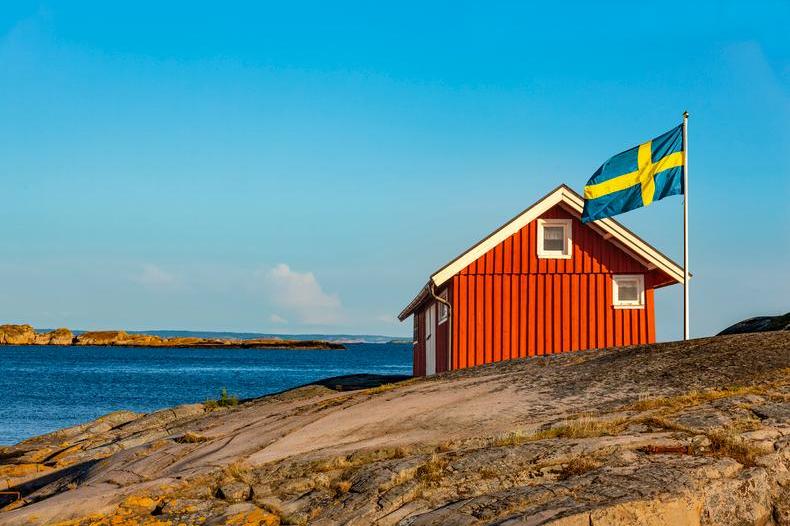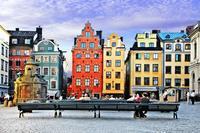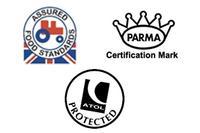Can a country name be a trade mark?
To what extent can the name of a country, like Sweden, actually be a trade mark which can be registered and protected?

Countries certainly like to promote their own unique values, and none more so than Sweden - but can this ever translate into a commercial brand which can be legally protected?
Can Sweden be a brand?
The Swedish have a pleasing word, “lagom”, which means not too much and not too little, and refers to their national trait of finding contentment with what one has. It’s part of what sets Sweden apart on the world stage as a national exemplar of egalitarianism, and is central to Sweden’s “brand” along with Abba, Volvo, blonde hair and meatballs.

Recently, it’s been widely reported that Sweden is the first country to seek to register its name as a trade mark at the European Union Intellectual Property Office (EUIPO), sparking much debate on the question of whether a trade mark can be stretched to cover a whole country. Can Sweden really be a brand?
It turns out that the answer to that question is “förmodligen inte” (or “probably not” to those of you who don’t speak Swedish). Like many things in trade mark law it turns out the question is rather nuanced, and is about as easy to solve as successfully navigating your way out of a branch of Ikea.
First of all, let’s clear up what actually happened here, because all is not what it seems. It wasn’t really Sweden that applied, but a Swedish company called Visit Sweden, which is owned by the Swedish government and is responsible for promoting Sweden as a tourist destination. It also didn’t file a trade mark application but a certification mark application, covering “travel information services” in trade mark class 39.
In short, the Swedish tourist board wants those who promote Sweden as a tourist destination to meet its own criteria – presumably that they are actually promoting the country of Sweden and not somewhere else. Whether Visit Sweden will be allowed to control the use of the word Sweden in this particular way remains to be seen, but it has certainly attracted a lot of attention, which was probably the whole point.
Geographic locations and trade mark law
However, returning to the wider question this has all thrown up, trade mark law does have something to say about geographic locations being trade marks. Namely, Section 7(1)(c) of the EU trade mark directive states that a trade mark cannot be registered if it is a sign which designates the geographic origin of the goods or services.

Similar limitations exist in Swedish law (and here in the UK). The idea here is to ensure that no single party can prevent others referring to where their goods are made, as that wouldn’t be fair.
So, Sweden can’t be a trade mark then? Well, not quite. It turns out a geographic place name can be a trade mark if it’s not a place where there is any current association with the goods or services in question, or not one where there could be in the future. The oft-quoted example is that NORTH POLE for selling bananas would be registrable as bananas cannot come from there - at least not in 1938 when the comment was made by Lord Maugham in a case concerning the trade mark GLASTONBURY. Let’s hope the example holds up and global warming doesn’t eventually make it possible to grow bananas at the North Pole.
Therefore, the question to ask is whether the place is associated with the goods or services in question, or could reasonably be in the future. By that rationale it would not be possible to register Sweden for selling flat pack furniture. However, in theory it would be possible to register Sweden for selling natural gas, as unfortunately the Swedes don’t have any (who knew?).
But even then it’s a bit of a stretch, because while these rules can work for the names of towns or even cities, it is very hard to see how an entire country could never be associated with any particular goods or services. There is also the problem that consumers would inevitably just perceive a country name as being a descriptive reference to the place of origin, and not a brand name.
The UK IPO’s manual on trade mark practice gives the example of Germany, and says: “It is unlikely to be deemed inherently distinctive for any type of product because of the extent of its commercial activity (and the reputation it enjoys because of that activity). From being used on a foodstuff supplied in a supermarket, to being used on a piece of highly specialised dental apparatus, to being used in respect of a financial service, the relevant consumer’s perception of the sign will be consistent.”
This is of course a rather unfair example given the Germans’ penchant for making stuff (third on the list largest economies by GDP). The same is probably not true for a country like Dominica (183rd on the list). However, when it comes to Sweden (23rd), the principal expressed above probably does apply. It’s simply too developed and successful a place.
For the Swedes, or anyone else, it would probably never be possible to register Sweden as a trade mark for selling any particular goods or providing any particular services. It wouldn’t be very ‘lagom’ to try to gain such overarching power, anyway.
Asserting control through certification marks
However, that’s not to say that Sweden can’t assert some control over its name. As explained, Visit Sweden has in fact tried to register a certification mark, which anyone can use provided they meet the criteria Visit Sweden sets.

Certification marks are not designators of trade origin, but supervised designators of a particular characteristic, such as whether food is vegetarian, or from a British farm. Might it be sensible to only allow those who were genuinely promoting Sweden as a travel destination to use the brand SWEDEN to do so?
This writer suspects that no such rights will be granted, because despite their different nature, certification marks are still subject to the same scrutiny as normal trade marks. If the name of a country is resistant to being a trade mark, it would probably also be resistant to being a certification mark.
If the name of a country per se can’t be protected, a phrase like “Made in Sweden” might be registerable as a certification or collective mark though. Here in the UK the non-profit organisation Made in Great Britain Campaign Limited owns the MADE IN BRITAIN logo and allows all those who do make things in Britain to use it. A similar scheme could be used anywhere.
There is also the rather pleasing little cohort of special trade marks called geographic indications, which are marks usually associated with foods and drinks from a particular place. Think Champagne and Dorset Blue.
Sweden has no less than 32 of these protected marks, although disappointingly Swedish Meatballs isn’t one of them. Those 32 marks represent culturally important names which the Swedes can keep to themselves. Anyone for some Hjälmargös fish and Swedish Punch?
So, in the end the main prize is almost certainly not up for grabs, even in certification mark form. However, no one can say the Swedes don’t have a clear blue and yellow brand identity. And if at its heart it’s all about having ‘not too much and not too little’ and being content with what you’ve got, then in trade mark terms that’s probably about right.

